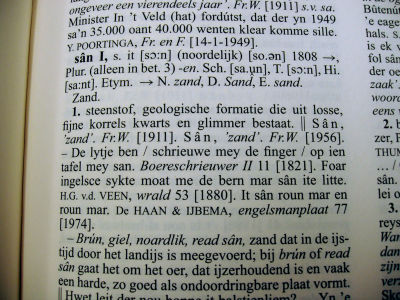Are there words that are common to all languages?

When learning a language, I often run into difficulties, such as when words that refer to the same thing in multiple languages have completely different sounds, or when I have to say, ``This word in this language translates like this in another language.'' This is due to the complexity of language, such as the fact that what is said to be two words may not actually refer to the same thing. Languages that are spoken in close proximity or have the same origin can be easy to learn because they are similar, but when asked, ``Are there any words that are common to all languages?'' The learning platform
Are Any Words the Same in All Languages?
https://blog.duolingo.com/words-shared-in-all-languages/

Duolingo, a platform for learning foreign languages, solicits questions from learners in its advice column , Dear Duolingo , exclusively for language learners. In response to the question posed by Dear Duolingo, 'I like reading about the differences between languages. On the other hand, are there any words that are common to all languages?' Cindy Blanco explains.
According to Mr. Blanco, he was not able to research all of the more than 7,000 languages in response to this question, but as a result of researching a large number of languages, he found five words that have few patterns between languages and words that are common to all languages. Suppose that two words with high probability have been discovered.
First, Mr. Blanco points out ``tea'' as a word that has few patterns even across multiple languages. Regardless of the type of tea, such as black tea or green tea, 'tea' is often called with a sound similar to 'tea' or 'chai,' both of which were used in East Asia in the past. It seems to come from a word.

In addition, 'pineapple' is divided into three patterns around the world: the sounds 'ananas', 'abacaxi', or words derived from 'pine cones'. 'ananas' and 'abacaxi' originate from words used by the indigenous peoples of South America, where pineapples originate, and were originally written as 'ananas' in English. This name was combined with the word ``pine,'' which has a similar shape to ``apple,'' which was used as a general term for fruits, and became known as ``pineapple.'' According to Mr. Blanco, as an exception, in Chinese it is a word that is not one of these three patterns.
The third word that has few patterns across languages is 'orange,' which was 'popularized by merchants who used the Sanskrit word 'naranga,' a variety of the tree,' and 'Portuguese merchants who popularized something sweeter.' Due to these two histories, the majority of words are words that are similar to Sanskrit and words that are similar to Portuguese. In addition, a smaller number of words similar to ``appelsin,'' meaning ``Chinese fruit,'' are also found in northern European, Russian, and Ukrainian languages.
Mr. Blanco also cited ``taxi'' and ``tomato'' as ``two words that almost passed the mark.'' 'Taxi' is a new word that was just created in the early 20th century, so it seems that the words have similar sounds, with the exception of some languages such as Chinese and Icelandic. In addition, 'tomato' is derived from
One of the words that Mr. Blanco cited as ``a champion of words that basically can be used in any country and has the same meaning'' is ``coffee.'' At the same time that coffee began to be traded around the world, the Arabic sound ``kahwah'' was also adopted, and depending on the language, the ``w'' sound changed to ``v'' or ``f'', and words with similar sounds were used. It is widespread all over the world.

The second word is 'chocolate'. Derived from the Nahuatl word for a drink made from 'cocoa', the English word 'chocolate' and the German word 'ch' sound replaced with 'sh', 'Schokolade', ' In Japanese words that do not end with a 't' sound, an 'o' is added to make the word 'chocolate,' and while the sounds vary slightly depending on the language, some common sounds remain.

Mr. Blanco said, ``It's fun to know words that many unrelated languages share, and now you know two words in almost every language on the planet!'' We haven't been able to confirm any exceptions for coffee and chocolate, but there may be exceptions that we don't know about.'' We are looking for language exceptions.
Related Posts:
in Note, Posted by log1e_dh







